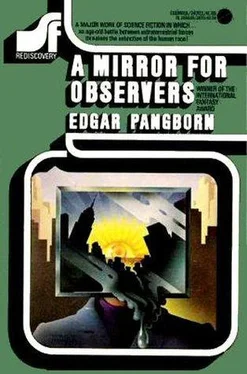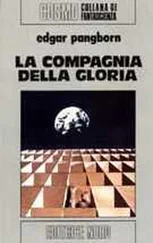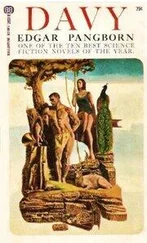No doubt you have Observers keeping track of Joseph Max and the antics of his Unity Party. I shall be another, at least until I satisfy myself about Billy Kell. Maybe I can turn up something interesting as a by-product. Hell’s a-brewing around Joe Max. And by the way, what is there about his party to attract a man of the stature of Dr. Hodding? At risk of repeating what other Observers may have told you, this is the Hodding story as I saw it in the papers two years ago: Jason Hodding was director of the Wales Foundation (biochemical research and very good), and startled the world out of its pants with a propaganda blast for Max’s party in the congressional elections of ’70; supposed to have helped elect that freak Senator Galt of Alaska. Then Hodding quit the Foundation (or was fired?) and dropped out of sight of the public. Lives prosperously on Long Island, “retired”; said to know more about virus mutations than anyone else at large….
Max calls it the Organic Unity Party now. He no longer yelps in public about racial purity, though some of the whispers against the Federalists’ Negro-Indian candidate must originate with Max. In public he approves of human brotherhood: there are votes in it. He’ll make a try in the fall election, shouting for America to rule the world. “Clean up Asia!” — a banner with that legend decorates his headquarters on Lexington Upper Level, and nobody laughs. We must go in and reform Asia (for its own good of course) while the Russian and Chinese giants are (apparently) gasping their last. Maybe they are: everything Max says carries the virus of half-truth. The techs say, and Satellite observations are supposed to confirm, that no atomic explosions have taken place in Asia since last summer. I give the Satellite Authority credit for resisting the pressure a year ago to solve everything with a few hydrogen jobs. That took courage, up there on the Midnight Star, since the humanitarian opposition was, as so often, tiptoeing by on the other side. As of March, 30,972, we don’t know — frantically, elaborately, diplomatically don’t know. If you believe Satellite Authority communiqués (I do, more or less) there must be idiotic trench-and-outpost warfare all along the north-and-south backbone of Asia, Siberia remaining the darkness it always was. Now and then the Authority says plaintively that it really can’t collect social and economic data from 1075 miles up. Drozma, tell me when you write whether Asian Center is still safe. I had friends there.
Here, only the Organic Unity Party appears to have no doubts.
Nobody laughs at Max. That frightens me. The public is hardened to seeing his fanatic puss on the front page, telescreens, news-reels, always a bit sallow and sweat-shiny when they catch him without make-up, a bad animated caricature of John C. Calhoun with nothing of Calhoun’s honesty or personal gentleness. When, last year, Max developed a flopping cowlick — damn the thing, nobody laughed. He saves his juiciest venom for the newly formed Federalist Party. I haven’t made up my mind about them. Seems to be nothing disingenuous in the movement and much sense, if they’d tone down the doctrinaire certainty of their one-world members. They sometimes lose sight of their own good premise, that difference-within-union is the essence of federalism. Toward the Democrats and Republicans Max has only contempt — he says they are on the way out and that’s that. They make the mistake of paying him back in his own coin or trying to ignore him out of sight. The Republicans have been fresh out of ideas since ’968, when the Democrat Clifford got in (and how wrong I was about ’64! Would’ve lost my shirt, only I’m not the type.) Rooseveltian splash followed by Wilsonian bubbles. Nice chap, Clifford. Progressive they tell me. I sometimes wonder if he knows his aspirations from his elbow.
A word about the Philippines, Drozma. Watch that Institute of Human Studies. Founded in ’968. I have a hunch the personnel is earthquake-proof, same as the buildings, which I hope I’ll live to see someday. Not just another inflated foundation. It has the quiet sort of courage behind it. I like their prospectus: “To collect and make accessible to all the sum of available human knowledge” — large order, but they mean business. “To continue research in those studies most directly related to the nature and function of human beings.” And they explain that the use of the term “human beings” instead of “Man” is deliberate — that would naturally appeal to my cantankerous bias. Point is they’re thinking in terms of centuries and not scared by next week. You remember how Manila ought to have been one of the world’s greatest centers of trade and culture, if European rule-and-grab hadn’t smothered it in what they call the eighteenth century and later. I don’t know why it shouldn’t be the Athens of the twenty-first. When my mission is ended one way or another, I want to go there before returning to Northern City.
Tomorrow morning I shall visit Organic Unity Party headquarters and pose as a snarky old man with money. My new face suits me. I may have used a bit too much heat when I raised the cheekbones, but that merely makes me apple-cheeked, cute as hell, six feet two of short-tempered Santy Claus, talking slightly daown-East, and I’ve practiced a deadpan stare that comes in handy. I mean to be a potential angel for the campaign fund, not quite convinced but open to indoctrination. They’ll lay down some kind of carpet. If Billy Kell is in there I’ll smell him out.
Now I can turn to something that has lightened my 355 years.
After I left Latimer, to follow up a rumor that someone had seen a kid hitchhiker twenty miles out of town, I knew that the police were not uninterested in Benedict Miles. I had my new face, and it seemed best to inform Mrs. Wilks, through Toronto, that Miles had died, leaving the school provided for in his will. Less harassed and hurried judgment might have produced something better than that, but once it was done I couldn’t undo it. Mrs. Wilks wrote faithfully to the Toronto “trustees” until two years ago, and the Communicator sent her letters on to me when possible — often I had no address. Two years ago Sophia’s sister died. Sophia turned the school over to a successor, and took Sharon to London, feeling that her own teaching could carry the girl no further. Sharon’s family wasn’t mentioned in that last letter. I have not been too severely distressed by my separation from the child I loved, because I have known that, chance permitting, I would hear of her again. When I came to New York last week, Sharon’s debut was in the announcements. This evening she played, in Pro Arte Hall.
It is a new auditorium, part of a splendid development along the Hudson. You wouldn’t recognize New York, Drozma. I almost didn’t, for the last good view I had of it was back in 30,946. I have passed through a few times in the nine years, but with scarcely a chance to pause.
In the ’960s New York decided to make its waterfront beautiful instead of hideous. A great Esplanade runs from George Washington Bridge to Twenty-third Street, with tall buildings at intervals, some set back among the lower structures on the inner side of the Esplanade, others rising sheer from the river. They tell me the railroad still rumbles down below. Dock facilities have actually been expanded, but it doesn’t look so: to come in on a ship or ferry is to enter an archway in a gleaming cliff. When I have lime, think I’ll go over to Jersey in order to come back on one of the chubby Diesel ferries and see for myself. The heavy automotive traffic on the second level is not felt up on the Esplanade, as you don’t feel it when you walk on the upper levels of the north-and-south avenues. On the Esplanade you have only the sky, the graceful buildings, human beings, and the Hudson River wind that now seems not hostile, gritty, and snarling but a refreshing part; of the city’s majesty. It was difficult to have any patience with New York in the old days. Times change. Hell’s Kitchen was wiped away long ago; blest if I know what they did with Grant’s Tomb but I’m sure it’s tucked in down there somewhere. This waterfront was planned soon after they snatched the city from the politicians and tried the manager system. They have kept out catchpenny concessions. On the wide Esplanade itself not even bicycles are allowed, though children are everywhere.
Читать дальше












